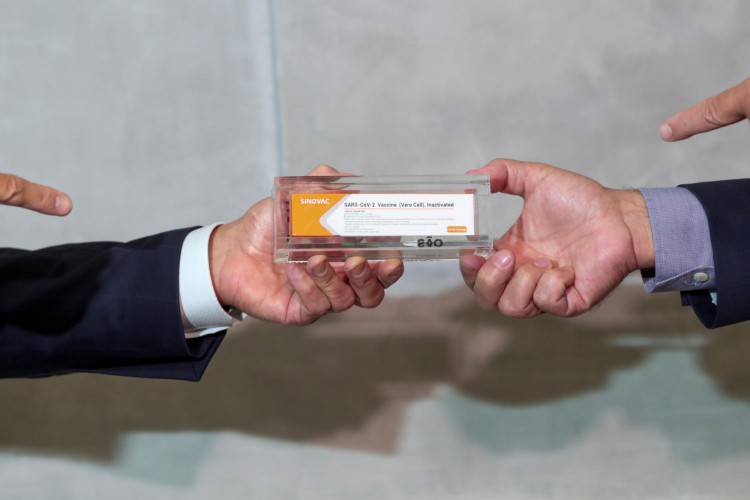The World Health Organization has approved China's Sinovac Biotech Ltd. COVID-19 vaccine for emergency use with China taking the lead in expanding international supply.
"The Sinovac-CoronaVac vaccine has been given World Health Organization emergency use listing after being found to be safe, effective and quality assured following two doses of the inactivated vaccine," organization director-general Tedros Adhanom Ghebreyesus said at a news conference.
The organization recommends people receive Sinovac - also known as CoronaVac in some locations - in two doses separated by two to four weeks. According to the organization, the vaccine prevented symptomatic disease in 51% of individuals who received it - the lowest efficacy rate of any vaccine approved to date. However, it was discovered the shot prevented severe COVID-19 and hospitalization in 100% of the study population.
Real-world data suggests that it may be significantly more effective. In Indonesia, a study of 120,000 health care workers who received the vaccine showed it was 94% effective at preventing symptomatic sickness, 96% successful at preventing hospitalization and 98% effective at preventing death.
Sinovac employs the same inactivated vaccine technology as Sinopharm - the same technology underpinning the polio vaccine.
Listing the China vaccine for emergency is hoped to give a boost to the COVID-19 Vaccines Global Access, or COVAX, initiative - which has been plagued by supply issues.
"The world desperately needs multiple COVID-19 vaccines to address the huge access inequity across the globe," Mariangela Simao, the organization's assistant director-general for access to health products, said.
In addition to China, the vaccine is being supplied in Chile, Brazil, Indonesia, Mexico, Thailand and Turkey.
As of May 31, Sinovac said it had supplied more than 600 million doses both domestically and internationally. It is estimated that about 430 million doses have been delivered.
One of Sinovac's advantages is it may be stored in a standard refrigerator at temperatures ranging from 2C to 8C. As a result, Sinovac is far more advantageous to developing countries that may not be able to store large doses of vaccine at low temperatures.
Meanwhile, a lack of authorization by international organizations has hindered China-made COVID-19 vaccines from being distributed worldwide, according to a former top disease control official.
China vaccine makers have ignored the importance of seeking international certification of their products, which affected their participation in international vaccine procurement and distribution, a former chief of the Chinese Center for Disease Control and Prevention Wang Yu said, according to a report Wednesday from Caixin.
Without international certification, China-made vaccines may face trouble getting recognized by the rest of the world as many countries consider the adoption of a "vaccine passport" for resumption of world travel.
Currently, six vaccines developed by five companies worldwide have obtained emergency approval from the organization. China's state-owned Sinopharm is the only China company on the list - although the country has approved five home-grown vaccines for domestic use.






